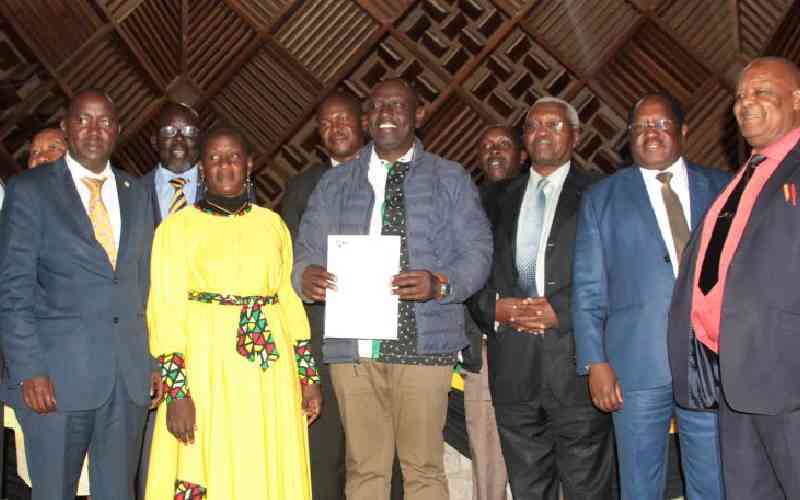×
The Standard e-Paper
Join Thousands Daily

Deputy President William Ruto yesterday unveiled a 45-point charter to overhaul the education sector, should his coalition win the August 9 General Election.
Dr Ruto also promised to review the Competency-Based Curriculum (CBC) to address current challenges identified by teachers and parents.